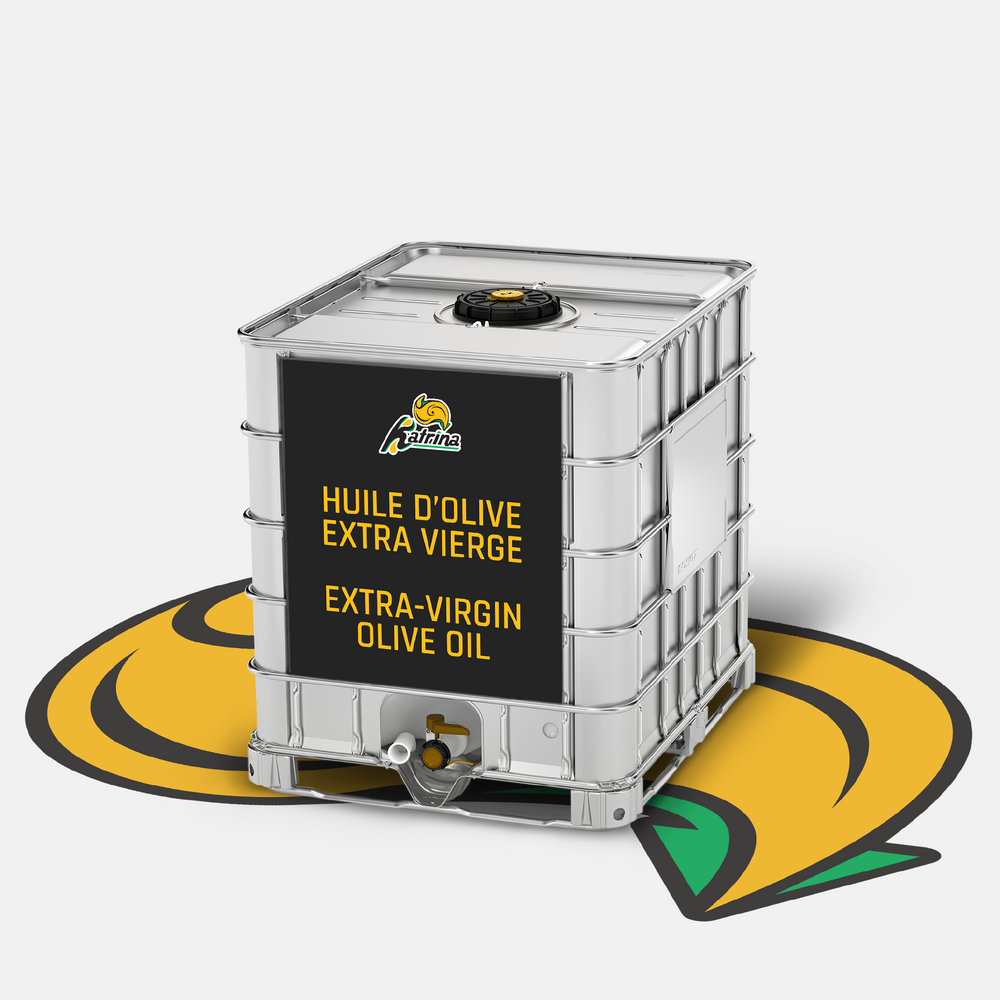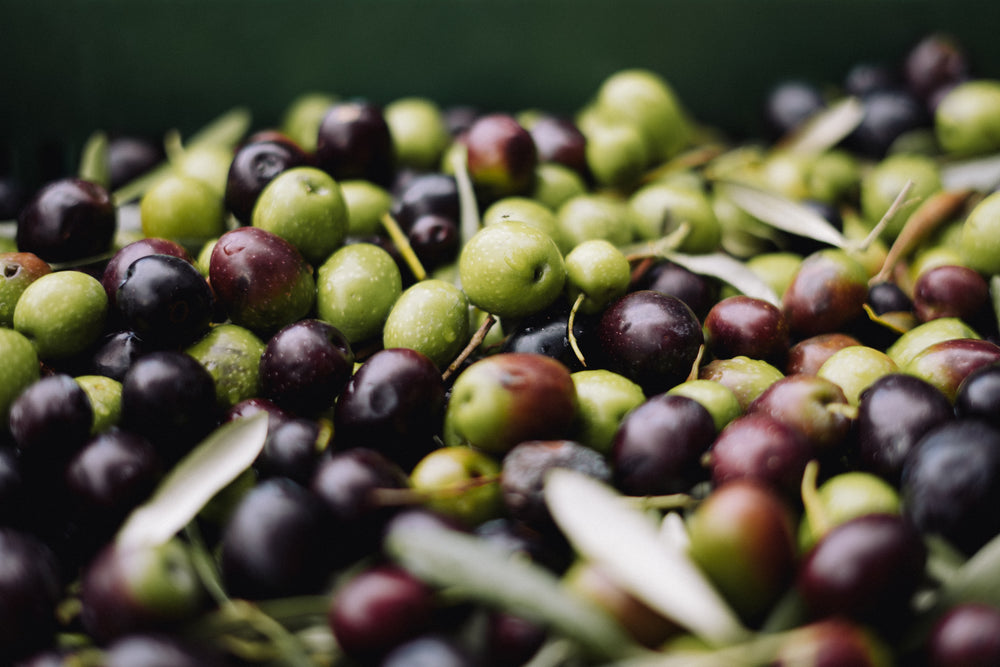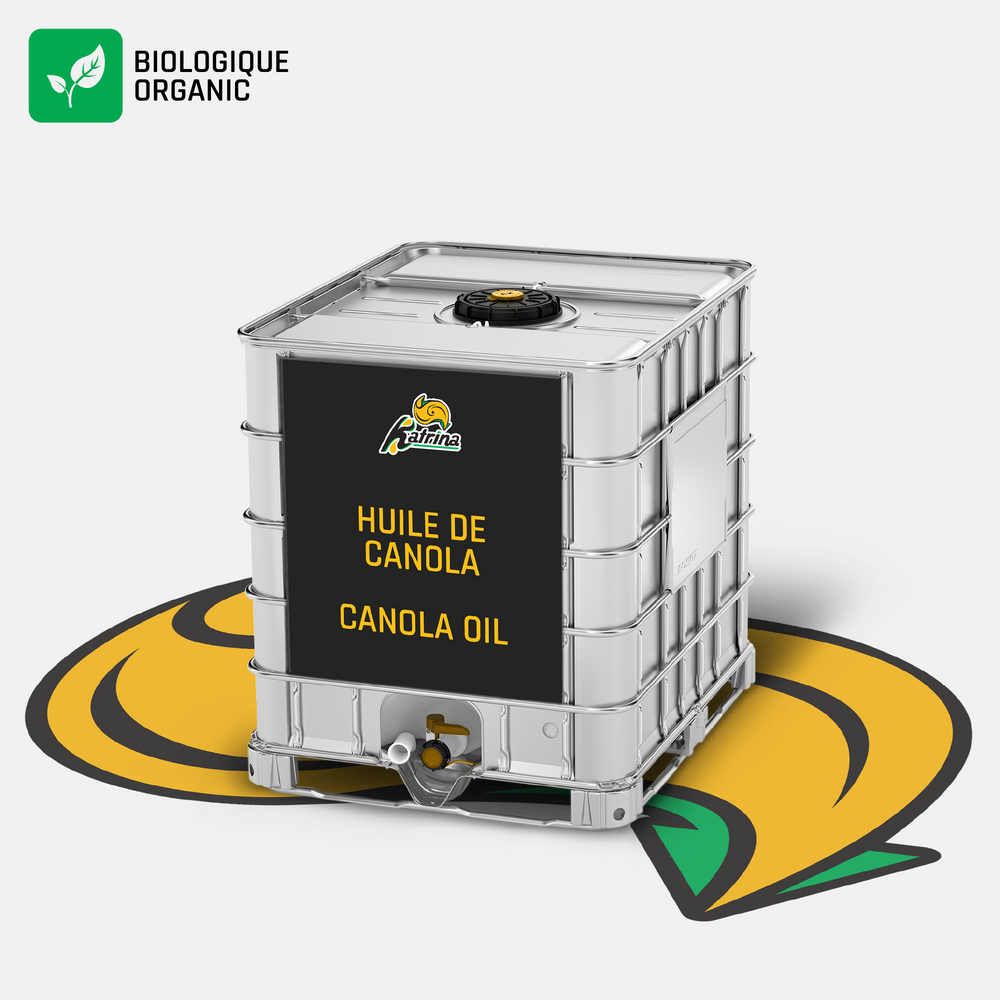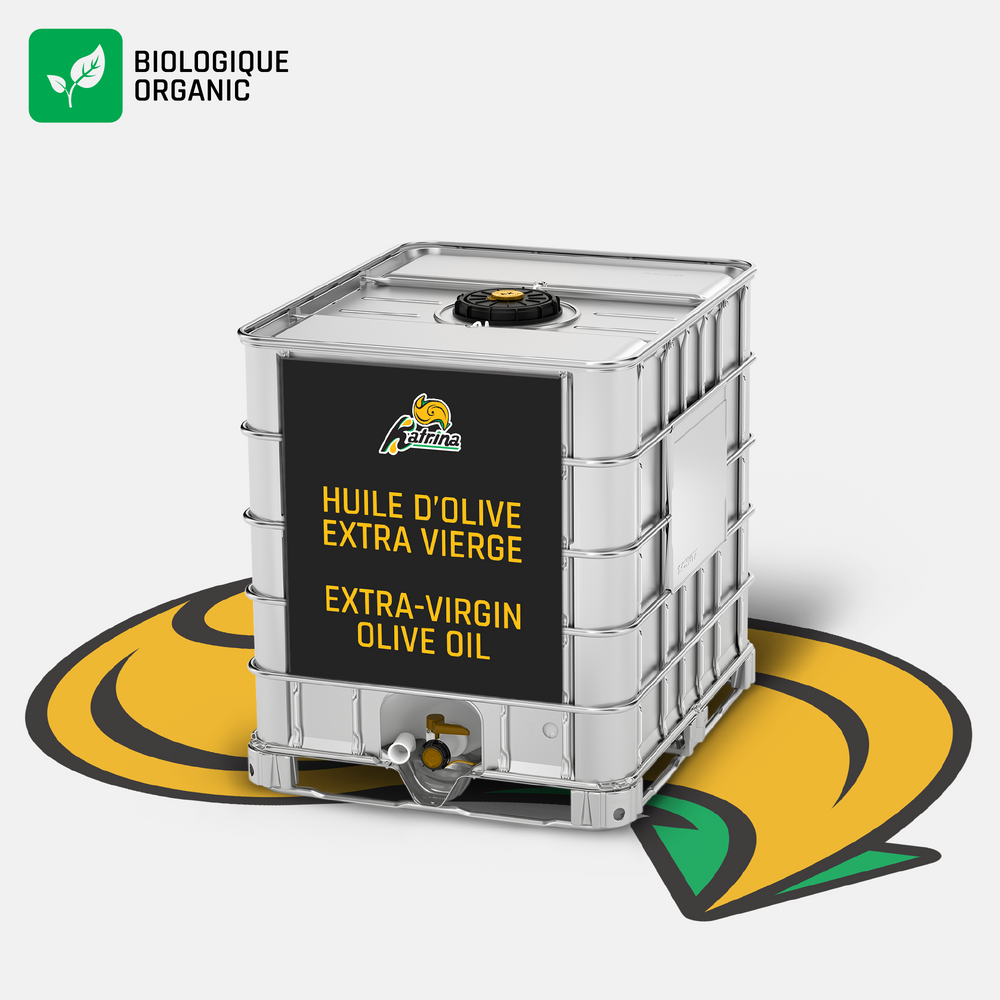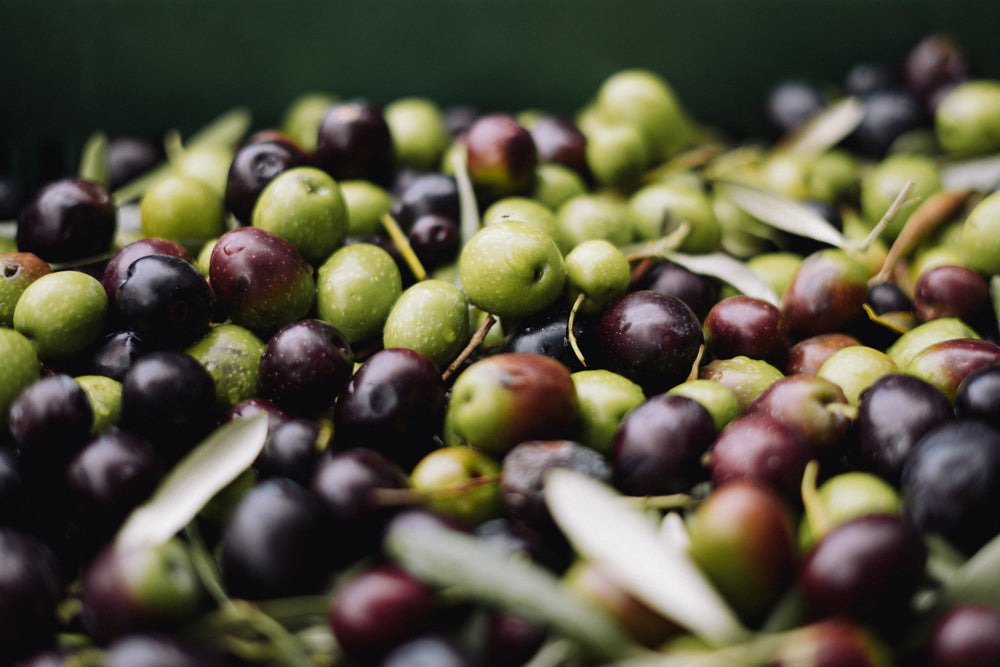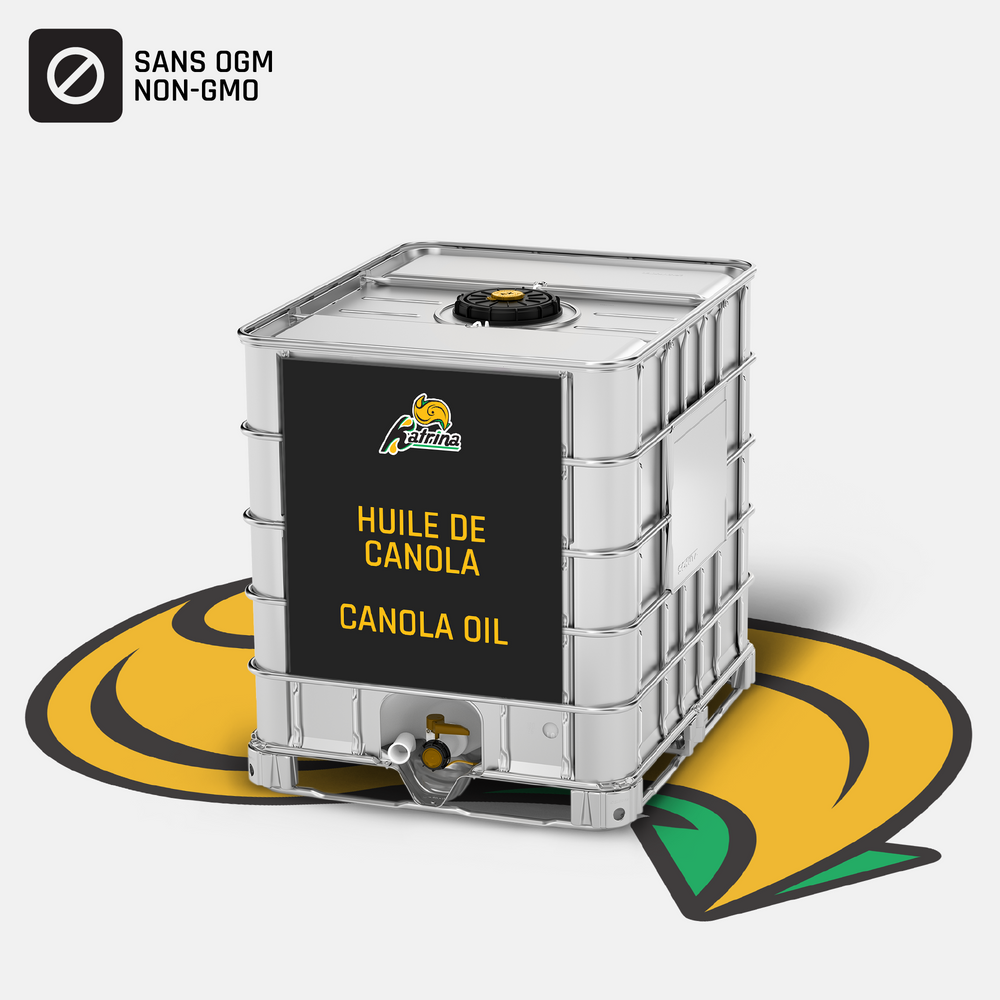Expeller-Pressed vs Cold-Pressed Oils
Terms like "expeller-pressed" and "cold-pressed" often appear on cooking oil and bulk oil labels, leaving consumers wondering: what's the difference and why does it matter?
Both expeller-pressed and cold-pressed refer to mechanical methods of extracting oil, both free of chemical solvents, but with a few distinctions.
The main difference is temperature: Cold-pressed oils are extracted and processed at temperatures below 122°F (50°C), while expeller-pressed oils are exposed to heat up to 210°F (99°C). Since cold pressing uses minimal heat, cold-pressed oils retain more flavour and health benefits compared to expeller-pressed oils.

Expeller-Pressed vs. Cold-Pressed: Differences At A Glance
- Extraction temperature range: Cold-pressed oils are made under 122°F (50°C), while expeller-pressed oils have friction-generated heat between 140–210°F (60–99°C).
- Flavour retention and aroma: Cold-pressed oils carry a bold taste and fragrance, while expeller-pressed oils tend to have a mild, neutral flavour.
- Nutrient content: Cold-pressed oils retain more antioxidants, such as polyphenols and vitamin E. Expeller-pressed oils lose some nutrients due to heat exposure.
- Smoke point and culinary use: Cold-pressed oils often have lower smoke points (around 320-350ºF), while expeller-pressed varieties can withstand frying or baking (up to 450ºF).

Expeller-Pressed Oils
An expeller press is a mechanical screw press that squeezes oil out of crushed seeds and nuts. In the case of expeller-pressed canola oil, for example, the canola seeds are first crushed into a fine paste. The expeller press then continuously applies pressure to the seed paste to separate the oil.
Even if no extra heat is purposely added, the expeller press creates enough friction to heat up the oil, usually between 140°F and 210°F (60°C and 99°C). This moderate heat facilitates the oil extraction process and results in a higher yield compared to cold pressing.
This method increases extraction yield, often by 10–20% compared to cold pressing. The heat generated by friction reduces volatile compounds while avoiding the use of solvents like hexane, which are used in chemical extraction. However, heat of any kind reduces retention of heat-sensitive nutrients, which is where cold-pressing stands apart.
Cold-Pressed Oils
Similar to expeller pressing, cold pressing utilizes a mechanical press to extract oil. However, the temperature is carefully maintained below 122°F (50°C).
The lower processing temperatures help preserve the oil's natural flavours and nutrients, which can be affected by heat.
While this method results in a lower yield then expeller pressing, the oils are considered higher-quality and are typically more expensive. Virgin and extra-virgin olive oils usually made using this method.
How to Choose Between Cold-Pressed And Expeller-Pressed Oils
Cold-pressed oils are the better choice if you're looking for the highest nutritional value and stronger flavour. The lower processing temperature preserves delicate compounds, so it’s ideal for health-conscious consumers.
Keep in mind: Cold pressed oils (like extra virgin olive oil) come at a premium price point because of higher production costs and limited availability. Expeller-pressed oils can be a more budget-friendly option, while still offering less processing than conventional chemical extraction.
Cold-pressed and expeller-pressed oils generally have similar smoke points and can be used interchangeably for most applications. However, refined oils have higher smoke points compared to unrefined oils, so it’s important to check the label for this distinction.
What are the disadvantages of expeller pressing?
The disadvantages of expeller pressing are all related to heat. Since heat is inevitable in expeller pressing, some nutrients and flavour compounds can be affected. In addition, expeller pressing yields less oil compared to chemical extraction, although it’s still a higher yield than cold-pressing.
Are expeller-pressed seed oils healthier?
Expeller-pressed seed oils are less processed and retain more nutrients compared to chemically-extracted oils, but more processed compared to cold-pressed oils. Expeller-pressed oils can be considered the “middle” option between the 3, overall healthier than conventional oils, but not as pure as cold-pressed.
Does expeller-pressed mean hexane free?
Yes, expeller-pressed oils are created using mechanical (not chemical) processing, so they do not use hexane or other solvents.
The Bottom Line
If you’re looking for the most unadulterated forms of oils, cold-pressed is the best option. However, expeller-pressed offers a unique middle-ground, offering less processing and no chemical solvents. Both methods help to maintain higher nutrient levels compared to chemical processing, and are more popular among health-conscious and sustainability-conscious consumers.

